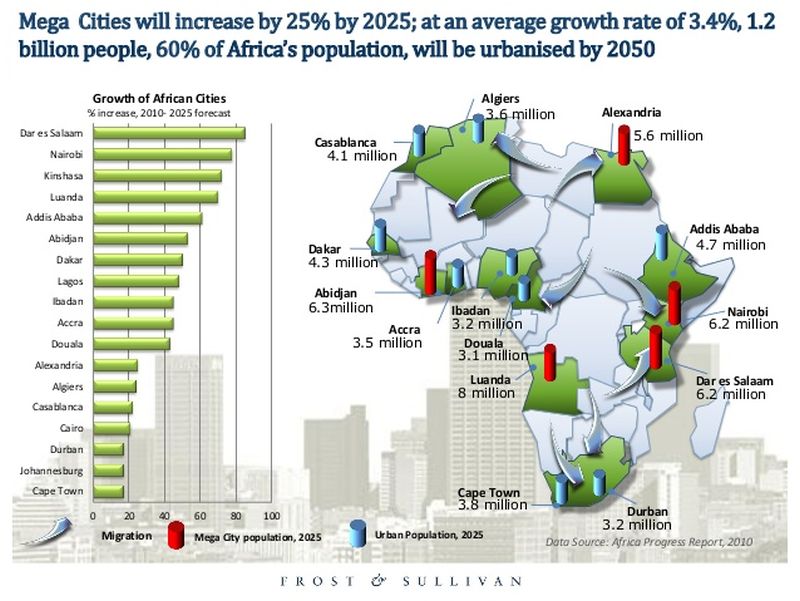Transforming African Cities into Dynamic and Prosperous Places

Africa currently has the world’s fastest growing cities, but even so Africa remains the least-urbanised continent. Taken together these facts tell us two things. First, Africa is not as prosperous as it should be because our cities are too small and disconnected. Second, this situation is changing rapidly and Africa looks set to emerge as one of the planet’s great centres of growth, innovation, and opportunity in the generations ahead.
We cannot take this trend for granted. This puts the urgency and relevance of the Smart Africa agenda into its proper context. The word ‘smart’ is really about leveraging digital technologies to narrow the gap between the high quality services we need, and those we can afford, and to do so quickly. We can work together to put technology in the hands of the citizens of our continent in order to build inclusive and sustainable places to live. Our future well-being depends on how well we respond to these challenges right now.
Let me remind us about a few key priorities. First, Africa has to be connected—and why not at the highest possible speeds? At first glance the figures appear low: only 20 per cent of Africans have internet access and there are only three years left to meet the Broadband Commission’s target of 50 per cent. However, this must be regarded as an opportunity for stronger public-private collaboration. In Rwanda, for example, our partnership with Korea Telecom has already served to speed up our progress toward the broadband target.
Second, we must deliver on technology’s promise to bridge divides rather than deepen them. That begins with the digital gender divide. So long as women and girls are lagging behind, then we are not on the right track. Access to technology and information must also not distinguish between rich and poor or between urban and rural areas. If technology is entrenching divides, rather than equalising opportunity, then we are not harnessing it well, and there will be surely negative consequences to follow from that.
We have to make use of the combined talent, know-how, resources, and decision-making power gathered here to open up new pathways of productivity and inclusive growth for our continent’s rapidly expanding cities.
Technology is a powerful framework for bringing diverse stakeholders together to define challenges and find solutions, as we see in this room. Transforming Africa, after all, means transforming Africans by enabling a practical mindset of problem-solving and discovery.
The focus on people is the starting point around which we can build everything else, including the infrastructure and systems required. This goal can only be achieved by all actors working together, with the private sector taking the lead and governments fostering a conducive environment for innovation and investment.
Our role is to continue to push for speedy implementation. Africans have the willingness to work and the talent to succeed. We need to make sure they acquire the knowledge and attitudes to be competitive.
By Paul Kagame
President of Rwanda.
